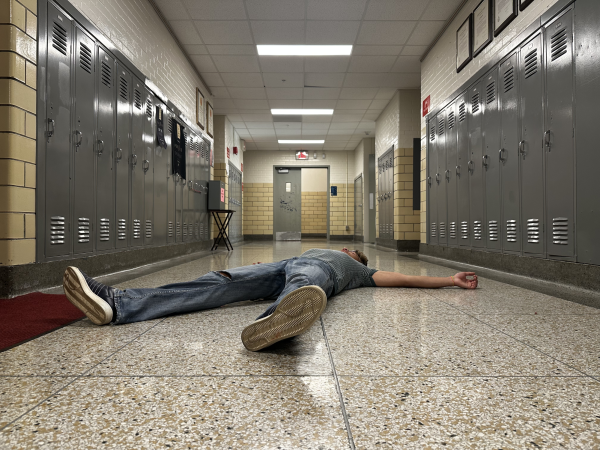Senior advice on post-graduation plans
Manual seniors give tips to underclass men on how they are deciding what to do after graduation. Graphic by Zoe Paige
April 22, 2022
The class of 2022 is rounding out their final year of high school and each individual has had to carefully consider what to do once they leave JCPS. Will they go to college and if so, where? Will they start a job or attend trade school? Will they take a gap year and travel or save up? No two post-high school plans look the same and it can be incredibly overwhelming when it comes down to these final details. A few seniors share wisdom about their experience and what they wish they would have already known or further considered beforehand.
On deciding about college
“I would say focus more on researching and applying to schools that fit your personal goals/interests, instead of schools that match the “norm” of Manual. I think a lot of students are pressured into applying to Ivies and other big fancy or prestigious schools students in grades above them did, which creates a skewed college culture at Manual. Rather than getting looped into the cycle of this culture, it’s better to spend time and effort on schools that actually fit you as a student and as a person,” Sophia Bryant (12, MST) said.
“Find the campus you want (big, small, rural, urban, etc.). It will help! Know what kind of degree you’re looking to get. See how far you want to be from home. Look for things that pull you in, if you don’t get a gut feeling from the university then it’s not the place for you!” Amanda Sant (12, YPAS) said.
“[Tips for art schools] Look at the art the students make, look at the alumni, look at what accepted art portfolios look like,” Rafael Mediodia (12, VA) said.
Deciding where to go to college has many factors and it’s best to start looking earlier than later. Knowing how you feel, your price range, distance, programs and other aspects are all very important in making your final choice. Deciding to spend your next two to four to even six years somewhere is a daunting task, but not impossible. Hopefully some of these tips will help you on your journey!
On the college applications process
“I wish I created a timeline. It’s so easy to get caught up in senior year and lose track of time. There were so many instances where I’d forget that I needed to submit by midnight, which led to what may have been subpar work. Having a calendar with due dates, required materials and weekly/daily goals would’ve helped prevent that.” Ellis Smith (12, HSU) said.
“Honestly, I wouldn’t worry too much about it until the summer after your junior year. Very rarely have I heard people’s college plans going exactly as they wished and most people will probably end up going to a university that they didn’t anticipate themselves going to. Personally, I didn’t even learn about the university that I will be attending next fall until the September of my senior year. It’s still good to do research early on and figure out what you want, but try not to get attached to any school or have any expectations,” Firas Alsanabani (12, HSU) said.
On deciding a more non-traditional route
Not everyone’s paths are the same. There are many options and opportunities that stem from taking other options. You can save money by going to community college or skip college altogether. Trade schools are another overlooked opportunity that provide a reliable and pretty well paid career afterwards. Some students find themselves drawn into entrepreneurship, jumping into a full time job or going into the military. College has become the modern norm, but that doesn’t mean it always was or that it necessarily should be. Even the lists here are not a definitive of where you can go or where you’ll find your calling.
“Do not feel pressure to go straight to a four year college/big institution. A lot of people will say “but don’t you want to have a college experience” and dorm life and stuff like that, but you won’t be able to experience real life if you’re stuck in debt after you graduate. I know it’s not for everyone and maybe you have a scholarship that pays for most of your schooling, but most of us don’t, so don’t be afraid to try a community college,” Liz Klein (12, J&C) said.
“I would tell underclassmen to explore all of their options. Even if you don’t think you’ll like it, just try it out. I always knew I was never meant for college right after high school but I also didn’t know what I wanted to do either. I chose the military [Navy] because it would give me the opportunity to find myself, as well as travel.” Mia Sellers (12, HSU) said.
Lots of students (especially seniors) can get caught up between school, friends and jobs. The hectic nature of life can become a lot more stressful when you factor in applying for and looking for colleges or trying to narrow down what direction you’d like to take life in. Taking a step back to recognize some things don’t work out the way you always think they will is important, as is remembering that what works best for you is the goal.
Good luck on your next steps after graduation!


















